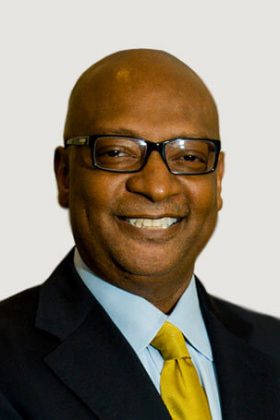

There’s a lot to know when you testify before a congressional committee. You’re walking into completely uncharted territory. There will be new rules to learn and certain etiquette to follow.
If you need advice regarding a congressional hearing or testifying before Congress, please contact Oberheiden P.C. immediately. Understanding the rules and procedures of congressional committees can be challenging. Every committee has its own rules and procedures.
At Oberheiden P.C., we will help bridge this gap. Our attorneys have frequently advised and coached our clients on attending governmental investigations. We will help you navigate through the procedures and politics of Congress to ensure smooth sailing.
There are many different things to learn about congressional hearings, so you don’t walk into that investigation blindfolded.
Here are five important things to know before testifying to a congressional committee.
During a criminal proceeding, your lawyer speaks for you. As a defendant, unless you take the stand and testify you never speak. Your lawyer gives the opening statement, interrogates the witnesses, etc. During a civil proceeding, it is the same. Unless you testify, you also never speak. Your lawyer does.
But during a congressional hearing, you speak – not your lawyer.
You give your opening statement. The committee members ask you the questions and you are the one who responds, not your lawyer.
You may be anxious about this. However, know that you know the most about your subject. Whether you are testifying as a witness, as an individual championing a cause, or as the owner or employee of a business, you know the most about it. There’s no one better.
And never fear. Just because you are the one speaking, that does not mean you are alone. Our attorneys at Oberheiden, P.C. will help advise you on answers to anticipated questions and how to approach each topic. And we’ll still be there next to you.


Former DOJ Trial Attorney

Former U.S. Attorney

Former U.S. Attorney

Former U.S. Attorney

Former Senior DOJ Trial Attorney

Federal Appeals Attorney

Former DOJ attorney

Former Special Agent (DOJ)

Former Special Agent (FBI & IRS-CI)

Former Supervisory Special Agent (DOD-OIG)

Former Supervisory Special Agent (FBI)
Because every committee has its own rules, what happens during the congressional hearing can vary.
Generally, the chair of the committee will give an opening statement followed by the ranking minority leader and some other members of the committee. After, you (the witness) will be able to give an opening statement. Then the committee members will begin asking you their questions, after which you will give your answers.
Many of these questions will be repetitive or at least the same question but worded differently. So don’t worry if you feel like you answered the same question three different times when asked by three different committee members. That is normal and expected. Our experienced attorneys will help you prepare answers to the committee members’ questions so that you can answer confidently and accurately.
Congressional hearings are not clandestine hearings taking place in the dead of night with just you and the members of Congress with no other witnesses. Rather congressional committee hearings are open to the public and media.
Both the Senate rules and the House rules state that the committee or subcommittee hearings can be open to the public. Further, these hearings can also be broadcast on the radio or television.
There are some topics, however, that need to be secret. Both the House and Senate rules allow for such exceptions to public hearings. Examples of these exceptions include issues that:
This can be a double-edged sword for your and your company. On the positive end, you’re not being called into the shadows to testify alone without any witnesses. There is public accountability for the congressional committee because the American public can see what is being investigated and why.
On the negative end, this means that there can be bad publicity for your company. If the media is permitted to observe the hearing, then this might affect your company’s reputation and goodwill even more than just being subject to the hearing.
It depends. Every committee and subcommittee have their own rules. Generally, the committee chairman is the first to speak and then usually the ranking member speaks. You will also be given time to give your opening statement. Each committee member will then get a chance to speak and ask you questions. You will then be permitted to respond.
From the opening statements to the questions of the committee members to your responses – all of these have set time limits. At Oberheiden P.C., our attorneys and professionals know the different rules and practices of congressional committees.
So, we will know what your time limits are, and we can help you formulate answers to the committee members’ questions. This way you never run out of time and always get your point across to the fullest.
Short answer? Very political.
One of the reasons for almost everything the government does is politics. Congressional investigations are no different. The topics of the congressional hearings will vary depending on which party has the majority. Therefore, you are most likely there as a result of a political move at the behest of the party with the majority.
Therefore, you’ll notice that the tone of the questions will change depending on what party the committee member belongs to. The members will probably each recite a short monologue before they start asking their questions. Their tone may be rude or accusatory – or it may be very friendly. You might even be able to tell whether the members are for or against you or your cause.
Try not to get caught up in their politics. In addition to the investigation or hearing, another objective of theirs is to appeal toward their constituents – especially if they are up for re-election soon. So, if they get accusatory or hostile, remain calm and respectful. The only thing for you to worry about is answering their questions truthfully and satisfactorily.
At Oberheiden P.C., we can help prepare you for your hearing. Contact our office today.
Oberheiden P.C. is a leading national law firm in the areas of compliance, defense, and litigation. Our legal team has an extensive background in representing clients who are subject to governmental subpoenas, inquiries, and hearings.
Contact our offices today and get a free consultation.
ratingratingratingratingrating
Nick gives you the immediate comfort of feeling 100% protected. He is polite, respectful— and extremely compelling. His legal strategy turned out to be brilliant.
NOTICE:
Attorney advertisement. Prior results do not guarantee similar outcomes. (1) Attorneys of Oberheiden P.C. are only licensed in the jurisdictions mentioned in their biographies and not all lawyers mentioned or displayed in Website content may be able to assist clients without adding attorneys admitted in the specific jurisdiction; (2) Oberheiden P.C. only has offices in Houston and New York. Mentioned other locations are unstaffed meeting locations, by appointment only, that are not designed to suggest or create a permanent presence; (3) Local counsel are independent and not partners or employees of Oberheiden P.C.; (4) All clients of Oberheiden P.C. will receive additional, written information (about the lawyer assignment/licensing in the case, our fees etc.) before making a decision to becoming a client. All website Terms and disclaimers apply.
NOTICE:
Prior results do not guarantee similar outcomes; attorney advertising. All information on this website has been prepared for informational purposes only and does not constitute legal advice. While this information may constitute attorney advertising in some jurisdictions, merely reading this information does not create an attorney-client relationship. Every case is different, any prior result described or referred to herein cannot guarantee similar outcomes in the future. All visitors to this Website are informed that Oberheiden P.C. ("Firm") works with affiliated lawyers (referred to as "Local Counsel") in various cities and states across the United States. These Local Counsel may assist the Firm on a case-by-case basis, operate their own respective law firms, are independent of Firm, and are not partners, owners, of counsel, or employees of Firm. Clients and prospective clients should be aware that when referencing to Firm's experience, this experience may combine the knowledge and experience of both Firm and its frequently used Local Counsel in the aggregate. Specifically, if and when Firm cooperates with Local Counsel, Firm will disclose the details to the client in writing for their approval. In some cases, pursuant to Rule 7.04 of the Texas Disciplinary Rules of Professional Conduct and the equivalent in other jurisdictions, a case is referred to a Local Counsel, the Firm will not participate in the representation. In such a case, a client will sign an engagement exclusively with the Local Counsel. Oberheiden P.C. is headquartered in Dallas, Texas and it only maintains a fully equipped office in Dallas and Houston. References to a particular city or state other than Dallas, Houston, and Texas in any article or anywhere on this website does NOT mean that Firm maintains an office in that location, and it does NOT mean that Firm has attorneys physically located in that city or state. Firm's lawyers are only licensed to practice state law in the states mentioned in their respective biographies. With few case-by-case exceptions, Firm's practice is limited to matters and questions of federal law and federal procedure. Firm's engagement letter and Firm's website disclaimers provide additional details.